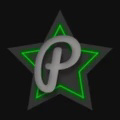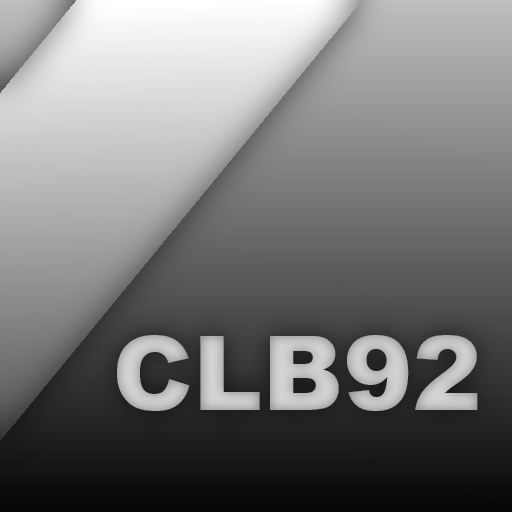Don’t really know how to explain this. I like sci fi and would love to dig deeper into it. Am avid reader and enjoyed Project Hail Mary (though set in space, this book is just amazing), Dune, short stories by Ray Bradbury and TV shows like Raised by the Wolves, Westworld, From (love From!). But e.g. Foundation I really disliked. Wheel of time is massive and I lost interest. Even the guide through galaxy I appreciated but was not really into it. Somehow, all those lots of traveling, lots of worlds, lots of many novel/invented names and terms render reading laborious for me.
Can you help me pin what is that I like and perhaps offer me a suggestion where to start? Thanks!
EDIT: thanks everyone for your excellent suggestions! So happy to be a part of lemmy community. I might make a follow up thread in couple of months so we can discuss some of the works. And lastly, if you been reading this far: have a good weekend.
I’m really enjoying the Wool Trilogy my Hugh Howey. It’s maybe more dystopia than sci-fi but in the same vein for sure.
My recommend is Semiosis by Sue Burke, it’s very different.
Also the commonwealth saga which is big but not overwhelming
Check out The Greg Mandel trilogy by Peter F. Hamilton. A lot of sci-fi, not focused on space travel.
I also love his large Commonwealth universe with several trilogies and novels in it that can be read independently, but these are definitely space based. I would start with the Void Trilogy. It is defined as a space opera. There are just so many cool sci-fi concepts though :)
I just want to put this out here, to ponder…it’s essentially a skill to be able to juggle and take in new jargon and stuff. It’s something you learn. I learned it as a child, so it’s second nature to me–but there was absolutely a time when I struggled!
So the question is: Do you want to develop that skill? (You don’t have to answer me, I’m just proposing the question so you can ponder it.) I’m assuming here when you say the complexity is what puts you off, that this is accurate. And maybe it is. But there’s a bit of a slog initially when reading SFF where you have to power through to gain the skill to follow these things–you’re literally training your mind to take in new data in a way that doesn’t much happen outside of SFF.
But also…what if the reason you bounced off the books listed is something else? What if it’s not complexity, but the delivery? The style of narration or prose? A lot of the works you list MANY people bounce off, not due to complexity but due to the authors’ voice and delivery.
I myself can’t get into WoT or the book version of Game of Thrones or Foundation. I can’t get into Tolkien either. Which is an abject sin in some circles!
But it’s not because those books are complicated. Or because of the jargon. I’m fine with both in many other books, and disliking certain well-known behemoths of SFF doesn’t negate that I read things like The Quantum Thief by Hannu Rajaniemi (which was pretty darn confusing and complicated) or Gideon the Ninth. Or all the stuff I read as a kid.
It’s because the specific writing style turns me off. Asimov, for example, is kinda known for his cardboard characters. Tolkien world-builds like an academic, and a lot of his stuff is a huge slog like much dry research in academia. Wheel of Time likewise doesn’t have that “something” in style or voice to make his worldbuilding engaging, nor does George R. R. Martin’s Game of Thrones.
But I am a huge fan of authors who make big, complicated worlds who have a more interesting/engaging way of presenting what they have created. It’s not the complexity or jargon that puts me off in those other books, it’s the writing style.
Maybe it’s the same with you?
Yes, yes, you are totally correct - delivery can make all the difference.
But I have to add that my main problem is that I am a scientist and big part of my job is to read immense amount of literature and memorize/connect often obscure terms. So when I read for pleasure (I love my job, but still) what I tend to enjoy the most are character heavy, emotional books with beautiful prose, written by people with deep understanding of life. Quite opposite to the academic literature.
So you are right, yes, this slog issue is not restricted to SF (e.g. I don’t read epic fantasy either; GoT and LOTR books I skipped myself as well), but SF in particular is something I really want to dig deeper, as there the ideas challenge my brain and remain lingering far after I finish the piece.
But! - I prefer to do it without being forced into a memory challenge. Because if I start and within the first two pages there are 15 names and 3 planets and lots of traveling (i really damn hate descriptions of pure traveling, like please lets just skip that part) then I lose interest in the main idea and the ideas are what I am after.
So Tldr yes, you are absolutely right, it is also the prose and the delivery, but still no prose or delivery would keep me long motivated or make me deeply enjoy reading work which has too many names or weird, invented terms.
Short stories are the best way to go, anything by Ted Chiang for example
Clifford d Simak wow a lot of very relatable stories that feature interaction as well as the tech. Kind of like Stephen King in relation to horror.
Snow Crash by Neal Stephenson
Late to this party and I have to agree to Ian M Banks, Ursula K Le Guin, Philip K Dick (very weird, discontinuous, but free-floating and fascinating) and many more. Just to add a couple of things that HAVEN’T been mentioned, that really may get your sci-fi juices flowing: Brian Aldiss’s expansive “Helliconia” trilogy is a cracker - and I think you may see echoes of it in the premise of “Game of Thrones”. I’d also like to plug John Brunner - his work “The Shockwave Rider” is dated now, but essential reading. It is the first book to ever feature the idea of a computer virus. Also DO follow up on “The Machine Stops” by EM Forster - full text available online for free. If it doesn’t BLOW YOUR MIND that it features social media overload, and was written in 1909, well, nothing will.
In new wave sci fi, you might also want to check out J.G. Ballard - too weird and hardcore for many, but the missing link between Moorcock-style sci-fi and mainstream fiction - think 1960s to 1990s Black Mirror. One last recommendation. If you have time and interest, check out the much neglected and ultra-weird work of C.L. Moore. Her “Northwest Smith” character is the prototype for Han Solo for sure, (Space Pirate and smuggler with a concealed heart of gold, flies a deceptively fast ship with just one crewman, who’s an alien. Carries a “heat blaster” which is also configurable as a energy sword. Too many coincidences!)
Never too late for good recommendations! I am happy such a good collection of suggestions was made, not just for me but for everyone. Thanks for contributing!
I’d recommend finding collections of short stories. You often don’t have a lot of time to write expansive world building details when you’ve only got a few thousand words and a brief plot to get through. And a collection of different authors can make sure you have a variety if some of the authors aren’t your preference and then you can look at longer works by the authors you do like.
The Three Body Problem trilogy, especially the first two books.
Trying to avoid too many spoilers, the first book is about a Chinese scientist investigating a mysterious threat. It’s not too heavy on world building, and it’s set on present day earth.
Second book, The Dark Forest, is about how this impossible threat is dealt with, and I think it’s one of the most fascinating things I’ve read.
I think the third book, Death’s End, went overboard quite a bit, but it’s still a good one.
Red rising
Have you tried Asimov’s short stories? ‘I, Robot’ is mostly logic problems presented in a dramatic way. Good read.
I haven’t. I thought I wasn’t really into short stories… Till I discovered Ray Bradbury. Now I am very much into short stories. So will give Asimov a try for sure.
Philip K Dick, too. You’ll be amazed at how many movies his short stories and novellas have been adapted into.
VERY different genre, but if you’re digging short stories, i really dig earnest hemmingway’s stuff.
Try the short story The Machine Stops by E. M. Forster.
Check out Ted Chiang as well – his two short story collections (Story of Your Life and Others; Exhalation) are some of the best I’ve ever read. He wrote the story upon which the film Arrival was based. Lots of things about time, consciousness, free will, humanity, all beautifully done.
I suggest Becky Chambers, The Long Way to a Small, Angry Planet. The whole series is good but each is stand alone. There is a world and it’s in space but the stories are people scale.
Love that cozy sci-fi. The Last Gifts of the Universe was also really good. Mostly a story about people in space.
I was hoping someone would mention this series!
Seconding Becky Chambers. Her books are more character driven, with lots of development and the plot advances around the characters.
The All Guardsmen Party.
I’m surprised no one has mentioned The Culture series by Iain M. banks. Much like Dune there is a ton of world building that occurs in the novels but it’s not the focus of any one novel. You can read them independently and still enjoy them. The concepts he tackles in the novels were way ahead of their time and his prose and s second to none. The novel Consider Phlebas is typically where most people start, but I started The Player of Games.
Against a Dark Background from Banks is good too, much less space travel, a very adventurous plot and worldbuilding which is dense but doesn’t overtake the book.
Seconding The Player of Games as the place to start in the Culture novels, although there is notably a lot of space travel in the Culture series overall which might be why people are avoiding them for this request. But 100% worth giving TPoG a read, for sure - and it in particular has no space travel past the opening, iirc.









